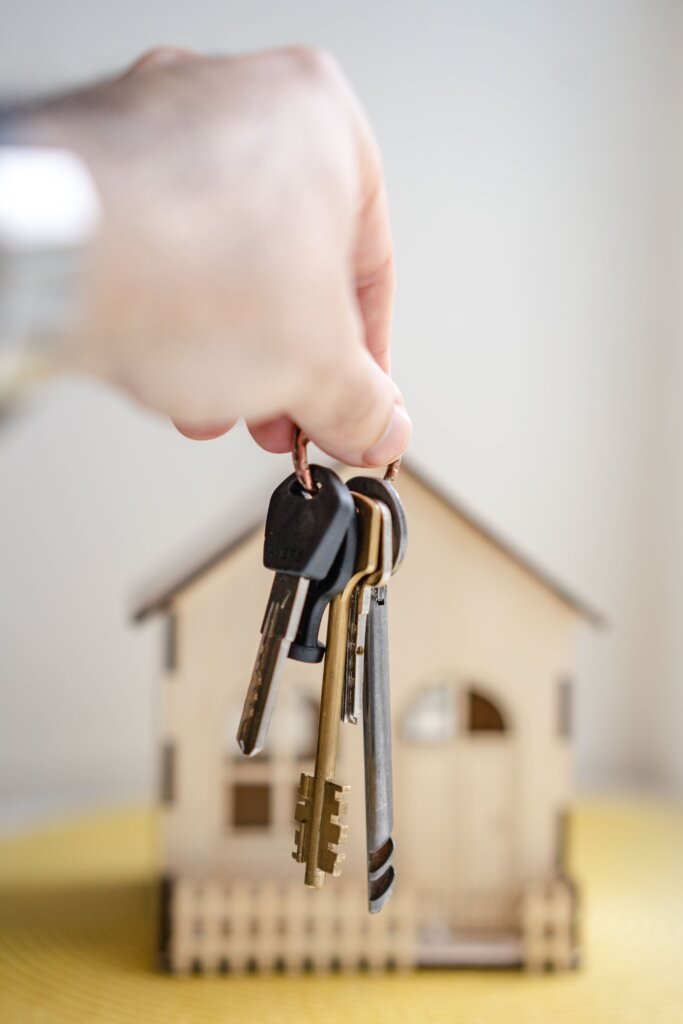Selling a probate home can seem complicated, especially if you need to know the legal requirements. This will also seem challenging when family members are grieving the loss of a loved one. Often, selling a probate house involves selling the home of the deceased and other assets.
Knowing how to sell a probate house is essential because specific requirements must be met. As you continue reading below, we’ve put together a step-by-step guide on how to sell a probate house.
What is Probate?
Probate is when a deceased individual leaves behind their estate and other assets to be distributed to any heirs. This might involve a home, bank accounts, and other financial investments. An executor is usually named to complete the process in a deceased person’s will.
Completing the probate process typically involves collecting the remaining assets to pay any leftover liabilities before distributing them to the remaining beneficiaries.

If a House is in Probate, Can it Be Sold?
You might wonder, “If a house is in probate, can it be sold?” The answer is yes, but if you have any proceeds, they might not be distributed as you may think. To help cover any probate costs, the executor can sell the estate if they’re appointed in the will.
Once the home is sold and the executor applies the proceeds to the probate cost, the courts will split any remaining profits among the heirs.
Can You Live in a House During Probate?
Can you live in a house during probate? The answer is yes, you can live in a house during probate. The probate process transfers an estate from a deceased person to a family member.
When going through the probate process, a will is presented, and the estate and other assets are divided among its heirs. Without a will, the estate will be divided among its family members.
If you’re living in a home going through the probate process, the executor must ensure they are following the rules of the estate. The executor could be required to give legal proof of residency. In addition, you should also monitor any changes to the estate, such as home improvement or repairs.
Who Owns the House During a Probate?
So, who owns the house during a probate? The process can seem complex and overwhelming when owning a home under probate. It’s essential to understand the specific responsibilities of owning an estate and the factors that determine what happens to it.
To determine who owns the house during probate, the will of the deceased will specify who is entitled to their property. However, in some cases, this does interfere with other state laws. A probate law will specify how to resolve these disputes, such as determining who has legal rights over the property and the assets passed to heirs.
Process for Inheriting a Probate Property
When it comes to owning a home during the probate process, there are legal and certain financial aspects to consider. Depending on the type of estate, some laws can determine how assets are distributed to heirs and how other types of inheritances are handled. Therefore, you might need to pay some taxes in addition to attorney costs and transfer fees.
If you’ve inherited a home from probate, you should contact a professional for the best advice before deciding how to move forward regarding your new home.
What are the Legal Requirements When You Inherit a Property?
Inheriting a property during probate involves more than only dealing with the will. Depending on your state, you must meet specific legal requirements to ensure you can inherit the property. For example, some legal requirements include providing all parties have become notified of the property transfer to ensure the proof of death and how you’re related to the deceased.
In some circumstances, when inheriting a probate property, you may need to go through probate court, which requires a lot of paperwork that the executors and attorneys must fill out. While inheriting a probate property may seem like a rewarding experience, it may seem very exhausting if you don’t know what you’re doing. Ensure you know your local laws before inheriting a property to avoid delays.

How to Transfer Ownership
The task may seem overwhelming and complicated to transfer ownership of a property. It’s essential to know your state laws and how they relate to inheritance tax or any other fees and requirements. Before transferring the title, you should determine if changing the tags can implement capital gains tax.
In addition, if several beneficiaries are involved with inheriting the home, you must get their consent to hand over rights to avoid further complications. Lastly, remember about insurance coverage when taking on the home to minimize any legal issues when going through the transition process.
Steps to Sell a Probate House
When a loved one passes, finding out what happens to a house during probate is sometimes confusing. Below are specific steps to follow if you’ve been researching what happens to a house during probate.
Petition for Probate
Before you can sell a probate house, you must have the Orphans’ Court petitioned in the same county where the homeowner lived to have a probate estate opened. To do this, you’ll need a petition and to file other supporting documentation like a death certificate with the courts.
Find an Executor
The next step of the process is to have the court appoint an executor who can administer the estate. When you select an executor, they’re responsible for paying off any remaining debts by the estate, locating any assets of value, and giving them to the remaining heirs. If the deceased has a will, the executor is usually named in their will, but if one isn’t named, the court will appoint one.
Have Documents of Administration
After an executor is appointed to sell a probate house, the executor must get Letters of Administration before they can legally act on the state’s behalf. The executor can lawfully sell the house and other remaining assets with Letters of Administration.
Have the Property Appraised
Once the executor obtains Letters of Administration, they must appraise the home to identify if it’s at fair market value. Determining fair market value is vital because you can’t sell the property for less than the appraisal amount without court approval.
List the Home for Sale
Once you’ve had the home appraised, if you’re the executor, you can list the home for sale with your real estate agent or have a direct sale. If you receive any offers, you must have them approved by the Orphans’ Court before you can finalize the sale.
Get Court Approval
Next, the executor of the estate must have a petition to the Orphans’ Court to have the sale approved. You must submit an appraisal report and sale agreement to petition the court for approval. If the court approves your petition, you can continue with the closing process if you’re the executor.
Give Proceeds to Heirs
Finally, once the executor has finalized the sale, they can distribute any proceeds to the estate’s heirs according to the will or by the courts if no will was made.
How to Sell a Probate House: FAQ
1. What is an Orphans’ Court?
An Orphans’ Court is a court that specializes in deals that concern matters of probate, which include distributing its assets and appointing guardians. Regarding the probate process, the Orphans’ Court oversees the workings of the estate and ensures that all legal matters are handled. The Orphans’ Court will also approve the property sale and distribute any of its proceeds.
2. What happens if an estate has multiple heirs?
If an estate has multiple heirs, the heirs should agree to the terms and how the proceeds should be divided. If the heirs can’t agree, the Orphans’ Court may need to get involved to resolve any unresolved matters.
3. If a house is in probate, can it be sold without an attorney?
If a house is in probate, you can sell it without an attorney, but it’s not recommended. Since the probate process can be challenging, legal matters must be resolved, and an attorney can make sure that any documents are filed accordingly.
4. How long does the probate process take?
When you sell a probate house, the process can vary depending on the state, but on average, the probate process can take anywhere from six to nine months.

